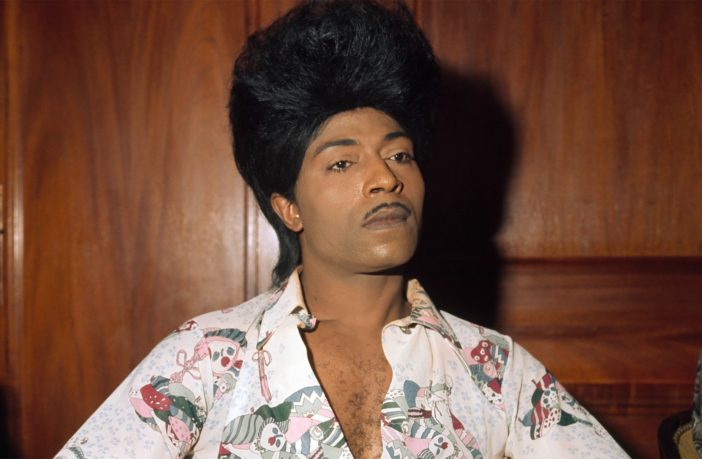“Everybody thinks they know Little Richard,” says Lisa Cortés, director of the documentary, Little Richard: I Am Everything, outlining the main challenge she faced in telling his story—but she fully embraced the challenge of exploring all we don’t know.
“The intention with the film was to peel the layers of the myth, of an icon, with the complexities of his life. He is one of the architects, originators, kings of rock and roll, but he did not always feel acknowledged by his peers,” she explains. “There was the pain of being a queer man, but also a man of faith and not seeing how those two could coexist.”
For her as a filmmaker, this texture was gold, says Cortés, “because it allows me to create a very rich portrait of someone who was a transgressive figure. And his contributions to culture are very broad.”
Born Richard Wayne Penniman in 1932 in Macon, Georgia, where he was one of twelve, Little Richard was raised in a religious household. So that internal tension was always with him. Leaning into his queerness is the notable difference to this portrait of Little Richard. Previous explorations of him and his life have touched on it, of course. Here, Cortés does a deep dive with all eyes open without ever losing the sight of the times that shaped and even constrained him.
“We have to do a little time traveling to put Richard’s origin story in the context of where America was, in 1955 when his career takes off,” Cortés explains. “We live in a very different time. Now some things haven’t changed. Richard was arrested for walking effeminately. His music comes of age at the same time that Emmett Till is killed. Those things are still situations that our communities are facing. But there is such boldness of what Richard is doing by his very presence, by him asserting his name and perspective into the world when he did.”
Another fascinating look is his time at Oakwood, the sole Seventh-Day Adventist HBCU, when he denounced secular music and returned to the church.
“That’s a big turn for him,” says Cortés. It came at a time, she continues, when “he has had tremendous success as a musician. He’s been in rock and roll films, he’s able to tour…. He’s touring in Australia when he decides to forsake it all and return to the States and go to bible college, where he becomes a student. And what I think is so interesting about that is, when he arrives at Oakwood, because it is a conservative Seventh Day Adventist school, they didn’t know his music. They didn’t know about the acclaim that he had lived with.”
For Cortés, who has come to Sundance before with a few of the projects she has produced, this one is the first where she is the sole director of a film. In addition, she is a producer on Bethann Hardison’s stunning bio-doc Invisible Beauty, which Hardison co-wrote and co-directed. “Sundance is an incredible launch for my film, because it’s the kind of the first shot across the bow, and to be selected as one of the few films for the U.S. documentary competition, is an incredible honor,” says Cortés, whose doc was picked up by Magnolia Pictures for theatrical distribution.
Up next for the prolific Cortés, whose many films include Precious and the documentary The Remix: Hip Hop X Fashion, is her eagerly awaited doc Empire of EBONY, which she also directs. Coming soon, she promises, this one is special to her she shares because “EBONY is such an important touchstone as a very early barometer of our culture, of showing aspirational, inspirational images at a time when the mass media and movies were diminishing Black people to mammies,” she says.



